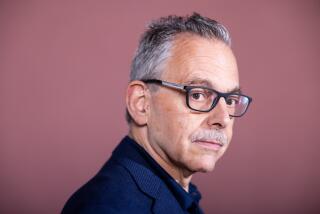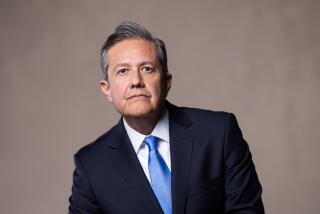Jorge Mas Canosa; Cuban Exile Leader
- Share via
MIAMI — Cuban exile leader Jorge Mas Canosa, who died Sunday, lived the American immigrant’s dream but never saw his dearest wish realized: the overthrow of his nemesis, Cuban President Fidel Castro.
The face and voice of Miami’s hard-line Cuban exile community for nearly 20 years, Mas amassed a huge fortune and vast political influence in Washington even as Communist Havana reviled him as little more than a fascist gangster.
Mas, who died of complications from lung cancer at 58, was a bitterly anti-Communist millionaire businessman lionized by some admirers as a president-in-waiting in post-Castro Cuba.
“I think he wanted to play a role in the reconstruction of Cuba, whether it’s as an investor or as a developer or as a czar in economic development,” said Jaime Suchliki, a professor at the University of Miami and an expert on Cuban history.
Other Cuba watchers said Mas wanted more than that--envisioning himself as the first president of the post-Castro era, whenever and however that comes.
Mas was founder and chairman of the Cuban American National Foundation (CANF), regarded as one of the most powerful lobby organizations in the United States. It was often cited as influencing the United States to maintain its uncompromising stand on the Communist island.
Well-organized and well-connected, the foundation helped make Miami’s exile community a major political force in Florida courted by everyone from city council members to presidents. Even President Clinton noted the influence of the Cuban exile community in U.S. policy toward the island, telling reporters in Argentina last month that “the hardest line people in Miami . . . are basically responsible for the policy.”
Mas was born Sept. 21, 1939, in the eastern city of Santiago de Cuba, the son of an army veterinarian. He fled Cuba in 1960, barely a year after Castro stormed to power by overthrowing rightist dictator Fulgencio Batista.
Before he became unofficial leader of the exile community, Mas was already a successful businessman. He founded a telecommunications construction company, MasTec Inc, which lays telephone cables worldwide and earned $473 million in revenues last year.
In March, Hispanic Business magazine placed him fifth on the list of the richest Hispanics in the United States with an estimated fortune of $257 million.
He and a group of wealthy exile businessmen founded the Cuban American National Foundation in 1981, finding a sympathetic ear in President Reagan’s administration which took office that year. By 1986, the foundation had entree to the White House, presented testimony at congressional hearings and published scholarly tracts on Cuba.
More to Read
Sign up for Essential California
The most important California stories and recommendations in your inbox every morning.
You may occasionally receive promotional content from the Los Angeles Times.










